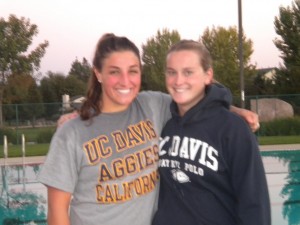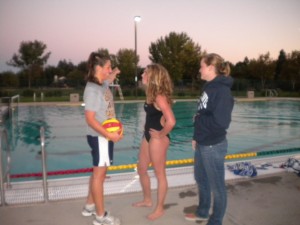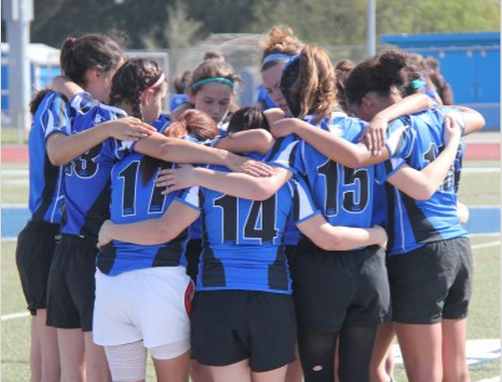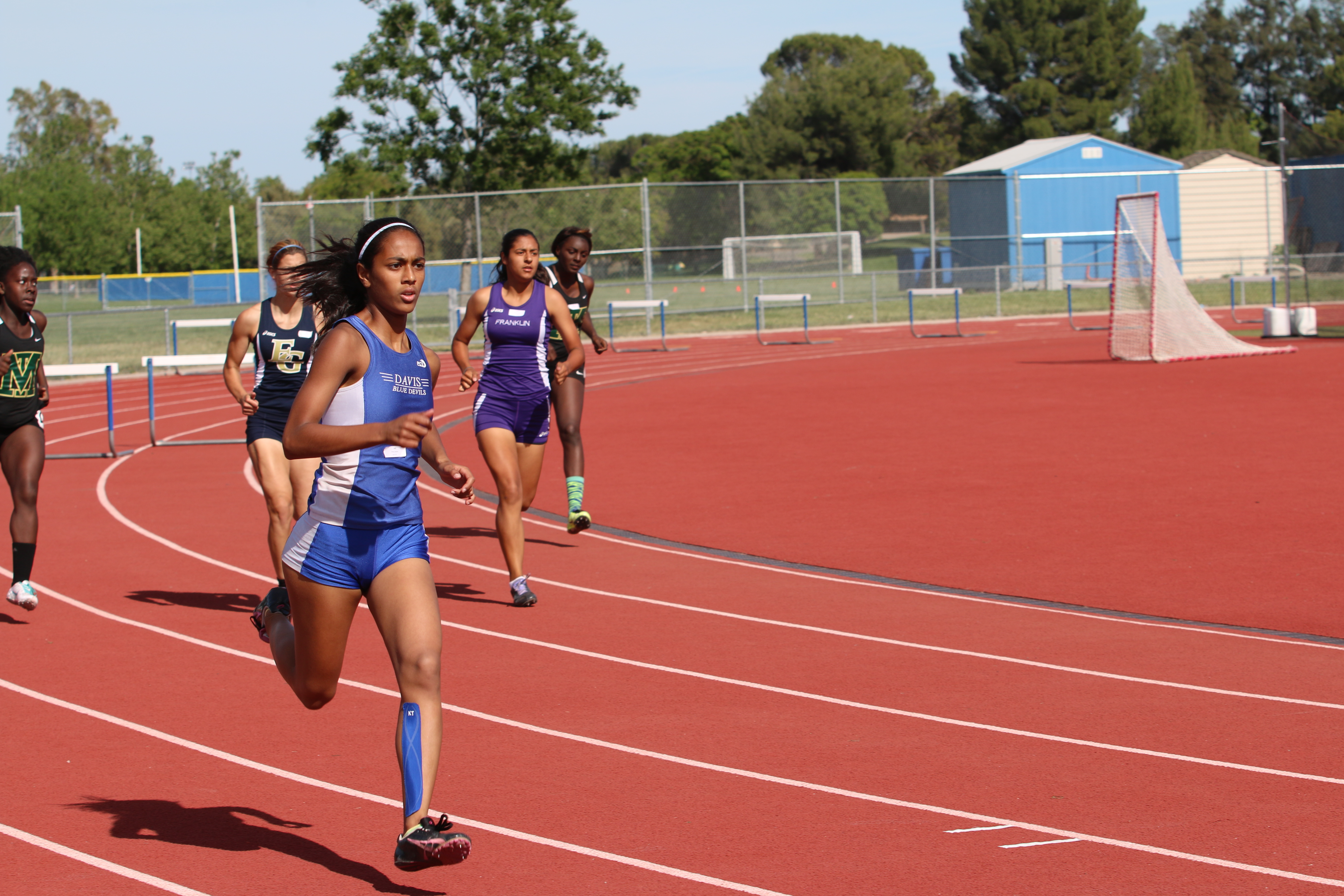Former DHS student athletes balance schoolwork and sports at UC Davis
A woman studied with her books and her lap top on a plastic table at a water polo tournament where she was coaching. It poured rain outside and water seeped through the overhang she took cover under.
Dakotah Mohr is a UC Davis student and former Blue Devil. Mohr, a former DHS student athlete of the year plays and coaches water polo. She coaches the DHS women’s JV water polo team, and helps coach the varsity team.
When student athletes get to UCD, how do they keep up with their school work?

“College is easier because there are fewer classes. Also in high school classes we didn’t get as much work done; it wasn’t very productive,” said Grayson Hough, a freshman runner for the UCD cross country team.
“There is so much less busy work in college,” Mohr said with a grin, “but college classes require a lot more studying in order to understand the class.”
Many UCD sports teams hold required study halls a few times a week to help the freshmen learn new study habits. Mohr is a leader of a team study group that studies eight hours a week, but still studies a lot on her own.
“Even with study halls, we had three academically ineligible athletes last year,” Mohr said.
“A college athlete puts in more time … it is really only possible to do one sport at 100 percent.” said Ariel Feeney, also a UCD woman’s water polo player and former blue devil.
According to Mohr the UCD water polo team puts in more than 18 hours of practice and weight training a week.
Hough agrees with Feeney that the workouts in college are more intense and take more time and effort. Hough said that a major difference from high school cross country is the hours the team spends in the weight room.
To help athletes choose classes that work with their sports’ hours, student athletes receive priority registration.
Student athletes fill out forms upon registration showing the days they are missing for their sport. This way if they are missing a test, the teacher can give the test to the coach. The coach supervises the athletes when the take the test during travel.
Athletic Academic Adviser Juan Vazquez and the four other advisers in his department help the 654 current UCD student athletes with academic registration and athletic and academic eligibility.
Vazquez thinks that freshmen come in with different levels of preparation.
“Each high school prepares students in different ways. Some of the most common challenges for freshmen are time management, learning how to study, and dealing with living away from home.”

Senior Michelle Greenough, a member of the DHS woman’s varsity water polo team, worries about finding a college that challenges her athletically and academically. She is looking at UCD because of its highly ranked water polo program and the variety of advanced classes.
Though time management is a constant issue Hough, Mohr, and Feeney believe that college athletics are worth the trouble.
“Being part of a sport gives you more school spirit. It gives you a community to rely on through tough academic times and personal ones,” Hough said.
Vazquez agrees that there are many benefits to being a student athlete at UCD.
“Learning to work as a member of a team toward shared goals is a skill that can be very beneficial in life as well as in a future career.”


